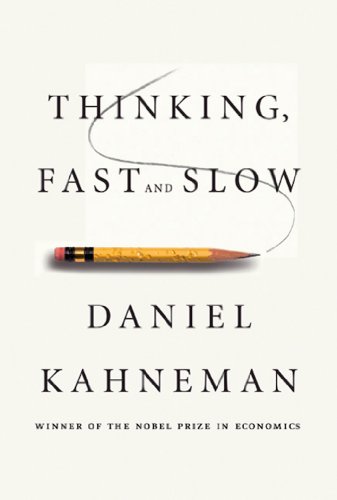

This article is an excerpt from the Shortform summary of "Thinking, Fast and Slow" by Daniel Kahneman. Shortform has the world's best summaries of books you should be reading.
Like this article? Sign up for a free trial here .
What is the peak-end rule? What does it have to do with happiness?
The peak-end rule is the theory that the overall rating is determined by the peak intensity of the experience and the end of the experience. It does not care much about the averages throughout the experience.
Learn how the peak-end rule applies to happiness and how it alters the way you remember experiences.
The Peak-End Rule
The peak-end rule has to do with memory. The happiness you get from an event is dependent on how you remember it. And your memory is affected by the peaks, the most important, memorable parts of the event, and how it ended.
Happiness is a tricky concept. There is in-the-moment happiness, and there is overall well being. There is happiness we experience, and happiness we remember.
Experiencing Self vs Remembering Self
Daniel Kahneman presents two selves:
- The experiencing self: the person who feels pleasure and pain, moment to moment. This experienced utility would best be assessed by measuring happiness over time, then summing the total happiness felt over time. (In calculus terms, this is integrating the area under the curve.)
- The remembering self: the person who reflects on past experiences and evaluates it overall.
The remembering self factors heavily in our thinking. After a moment has passed, only the remembering self exists when thinking about our past lives. The remembering self is often the one making future decisions. This is why the peak-end rule is so important–it affects our decisions.
The peak-end rule leads to preferences that the experiencing self would find odd, and shows that we cannot trust our preferences to reflect our interests.
The Oddities of the Peak-End Rule
More examples of oddities with the remembering self and the way it evaluates happiness based on the peak-end rule:
- Would you take a vacation that was very enjoyable, but at the end you took a pill that gave you total amnesia of the event? Most would decline, suggesting that memories are a key, perhaps dominant, part of the value of vacations. The remembering self, not the experiencing self, chooses vacations! This demonstrates the peak-end rule.
- Inversely, you have two options for an operation: 1) you undergo general anesthesia, but will endure a month of mild pain after; 2) you remain conscious and feel intense pain, but are given amnesia to remove any memory of the episode.
- Many prefer #2, indifferent to the pains of their experiencing self. It’s as though you are only your remembering self, and the experiencing self (who actually does the living) is a stranger.
- We can enjoy a movie all the way throughout, but if the ending is poor or interrupted, we have a worse impression.
- In general, we favor peak highs with short duration, rather than moderate highs over long duration. (Shortform note: this includes intense sensations like roller coasters and perhaps use of narcotic drugs.)
- The end of someone’s life tends to matters a lot more than duration. For someone who dies at age 57, you don’t care as much if they lived a whole extra year to age 58. But you do care about whether she was surrounded by her family in her last 10 minutes, or whether she was alone.
- Similarly, In an experiment, people were told of Jen, an extremely happy person throughout life who died painlessly at 60 in an accident. Another group was told of a similar Jen who lived to 65, with the first 60 years equally happy as the first Jen, but with the last 5 years being slightly less pleasant. The 5 only “slightly happy” years caused a drop in perceived total happiness in that life. Again, this is System 1 caring more about averages than summing the total experienced happiness.
These examples of the peak-end rule challenge the idea that humans have consistent preferences and know how to maximize them (the rational agent model). We will consciously articulate that we prefer pain to be brief and pleasure to last, but our remembering self has different ideas.
———End of Preview———

Like what you just read? Read the rest of the world's best summary of "Thinking, Fast and Slow" at Shortform . Learn the book's critical concepts in 20 minutes or less .
Here's what you'll find in our full Thinking, Fast and Slow summary :
- Why we get easily fooled when we're stressed and preoccupied
- Why we tend to overestimate the likelihood of good things happening (like the lottery)
- How to protect yourself from making bad decisions and from scam artists






